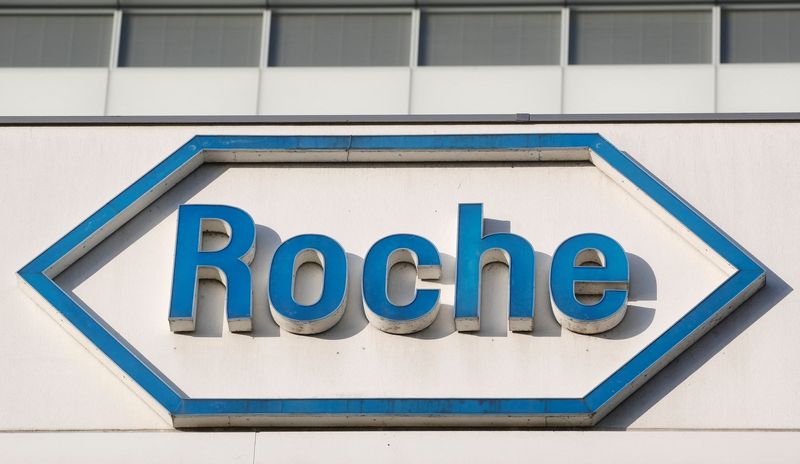By Ludwig Burger
FRANKFURT (Reuters) -The CEO of pharmaceutical giant Roche said authorities should block the takeover of contract drugmaker Catalent (NYSE:) by the controlling shareholder of Novo Nordisk (NYSE:), saying it could harm competition in the booming weight-loss drug business. industry.
Although Roche emphasized on Wednesday that it itself is not affected, Roche is one of the first drug manufacturers to oppose the transaction, which could have far-reaching consequences for weight-loss drugs based on the intestinal hormone GLP-1.
“Limiting competition in this area is not a good idea,” Roche CEO Thomas Schinecker said in a media call. “From the sector’s perspective, this would be a wrong decision by the authorities.”
“It could be a problem for other smaller players if there is a limitation in the number of contract manufacturers available,” he told reporters after announcing quarterly revenue on Wednesday.
The company said it would not comment further on any interactions with competition authorities.
“If companies start buying up CMOs (contract manufacturing organizations), that will generally limit the amount of competition that can exist,” Schinecker added in a later analyst call.
Last week, an alliance of U.S. consumer, patient and employee advocacy groups petitioned the U.S. Federal Trade Commission to block Novo Holdings, which controls Novo Nordisk, from acquiring Catalent, saying the deal would increase competition in weight-loss drugs and gene therapies threatened.
Executives at Eli Lilly (NYSE:), Novo’s main rival in the obesity and diabetes drug market, have repeatedly expressed concerns about the transaction, which will also see Novo Nordisk directly own three Catalent injection pen filling locations in Italy and Belgium. and the United States.
The interest groups said at the time that the deal would threaten competitors such as Amgen (NASDAQ:), Pfizer (NYSE:), Roche and AstraZeneca (NASDAQ:), which are reportedly developing their own anti-obesity drugs, some of which are based on difficult-to-make peptides.
Viking Therapeutics (NASDAQ:), Structure Therapeutics and Sun Pharma could also be affected, the advocacy groups said.
A Novo Nordisk spokesperson said in response to the Roche CEO’s comments: “If the acquisition is approved, Novo Nordisk will acquire three manufacturing sites from Novo Holdings. Catalent will still operate nearly 50 sites independently and separately from Novo Nordisk.”
The Novo Nordisk spokesperson said a “large number” of other contract drug manufacturers compete with Catalent and said that, if the acquisition is approved, pharmaceutical and biotech companies “will continue to have access to a wide choice of contract manufacturing options, including Catalent.” The spokesperson reiterated the company’s expectation that the transaction will close by the end of this year.
Novo Holdings said Catalent would continue to operate independently as a leading contract pharmaceutical manufacturer.
Catalent said: “We believe the transaction is pro-competitive, and we are not aware of any competing GLP-1 products being manufactured for commercial sale at the three locations that Novo Nordisk plans to acquire.”
It added that it would continue to work closely with European and US regulators and that it still expected the transaction to close by the end of 2024.
Novo would not be the first pharmaceutical giant to carry out contract manufacturing activities on behalf of rivals, as Pfizer and Boehringer Ingelheim, for example, also own such divisions.

The head of Roche’s pharmaceutical division, Teresa Graham, underlined on Wednesday that Roche itself was not affected: “We are confident that we have capacity. We have reserved capacity with other CMOs.”
When asked last week to comment on the investigation into the Catalent deal, Roche said it would use both internal and external manufacturing for the future commercial production of its obesity drugs.


